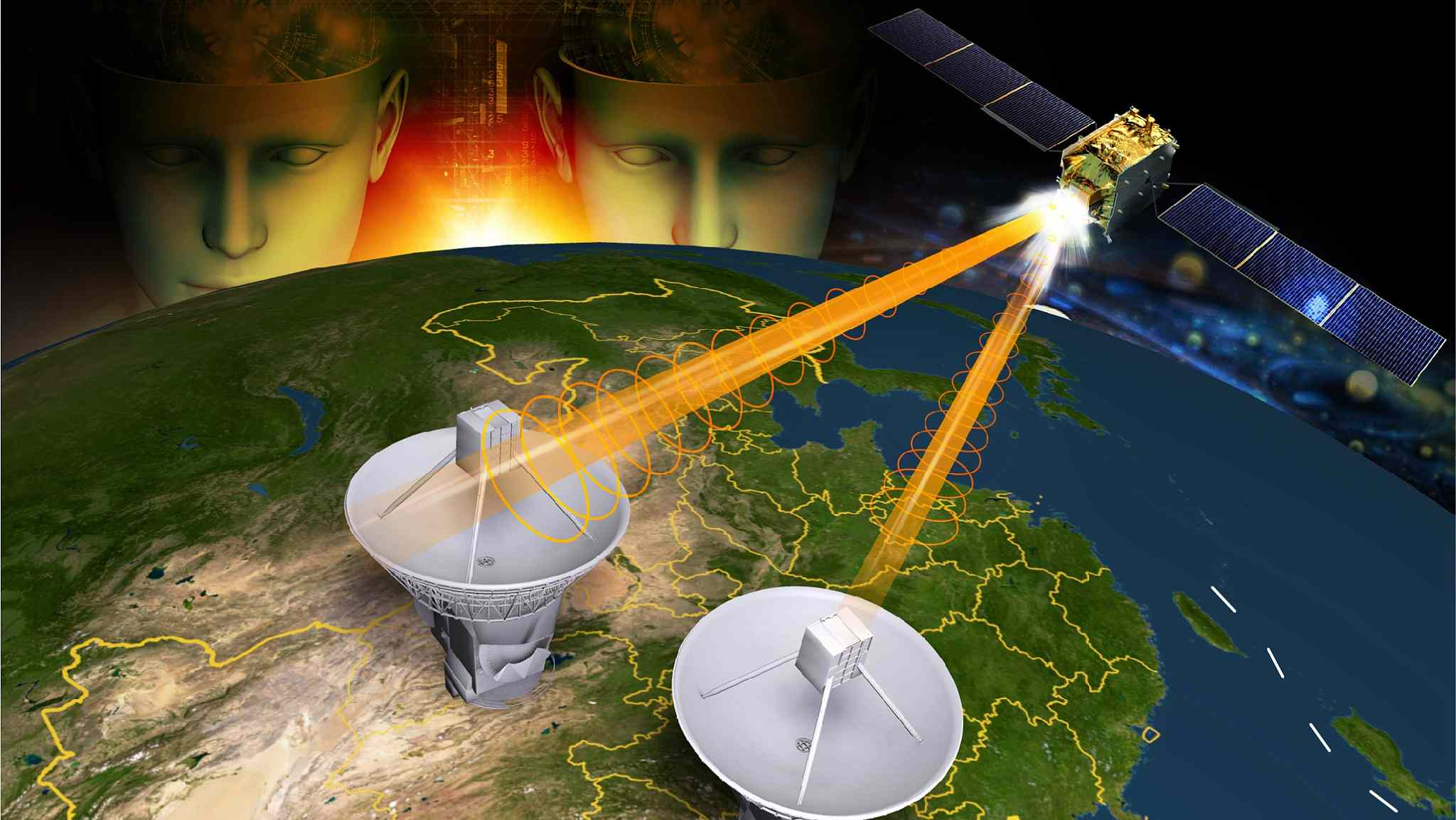
Internet
07:34, 20-Dec-2018
China's Sci&Tech Report Card 2018: Internet embraces new upgrades
Updated
06:44, 23-Dec-2018
By Pan Zhaoyi

The Internet is destined to move the wheel of human development at an exponential speed. China, without exception, deserves a special page in this turbulent online year as its users reached over 800 million, making the country the world's largest single Internet market.
Information technology: Cutting-edge technologies keep shining
The lesson from this year's trade war with the United States taught us never ever to become solely dependent on a single entity, especially when talking about high-tech products.
China's IT industry, in general, lagged behind those western countries who use many core technologies that are developed by foreign companies. But looking back, 2018 is still a fruitful year for some cutting-edge technologies.
Autonomous driving, voice and facial recognition, cloud computing, deep learning algorithm, these IT-based tech buzzwords made headlines in the foreign media for countless times, bringing the world's spotlight to China.

Facial recognition technology /CGTN Photo
Facial recognition technology /CGTN Photo
According to a report released during the World Economic Forum's Summer Davos, 14 artificial intelligence (AI) unicorn companies in China had values of one billion U.S dollars or more, and an overall combined total of 40.5 billion U.S dollars.
The existing strength in AI and the unparalleled access to the huge scale of data needed to train AI algorithms could give China a competitive edge in designing its own chips in the future.
Although gaps still exist in quantum computing and sensing, China is at the forefront when it comes to quantum communication technology.
Scientist Pan Jianwei and his team set a world record this August in using quantum mechanics to generate strings of random numbers that will provide unprecedented levels of security to the modern digital world.

China's quantum communications satellite Mozi /VCG Photo
China's quantum communications satellite Mozi /VCG Photo
During the same time period, a prototype exascale supercomputer was also launched by another team. With solely homegrown CPU and system software, the computing power of the new generation tripled that of Sunway BlueLight, China's first petascale supercomputer.
Read more: Sunway TaihuLight - Things you may not know
Information Infrastructure: Backbone of development
From fiber broadband to 4G and 5G technology, the information network infrastructure in China has also experienced leaps and bounds in development over the past year.
China's broadband users reached 378 million in 2018, with 328 million users using fiber broadband, accounting for 87.5 percent of the total number and ranking first in the world, according to the National Bureau of Statistics (NBS).
4G, with an even faster speed, is taking up more market share, with the penetration rate being among the world's top five.
The expansion of 4G smartphone connections, which London-based Global System for Mobile Communication Association (GSMA) predicts will reach one billion by 2020, meshes well with China's efforts to provide a more comprehensive mobile broadband coverage.

Three major Chinese telecom operators pilot 5G technology in several cities. /VCG Photo
Three major Chinese telecom operators pilot 5G technology in several cities. /VCG Photo
China's three leading telecoms firms are on the forefront to drive the fifth-generation technology, conducting trials in several cities to help accelerate the commercial application.
Domestic phone makers like Huawei and ZTE have gone all out advancing in 5G technology. In April, Huawei obtained the world's first CE type-examination certificate (TEC) for 5G products, winning official approval for commercial use in Europe.
Cooperation in cyberspace
China held several talks with the European Union (EU), Russia and the United States this year, covering topics including the digital economy, blockchain, AI and 5G networks. All parties agreed on the future benefits brought by the cooperation in these fields.
On top of that, collaboration with countries along the Belt and Road also accelerated the development in terms of digital economy, information services, technological innovations, Internet and cyberspace administration respectively.
2019 will undoubtedly still be full of uncertainties. What will happen to China's Internet industry next year? Stay tuned to CGTN to find out.

SITEMAP
Copyright © 2018 CGTN. Beijing ICP prepared NO.16065310-3
Copyright © 2018 CGTN. Beijing ICP prepared NO.16065310-3